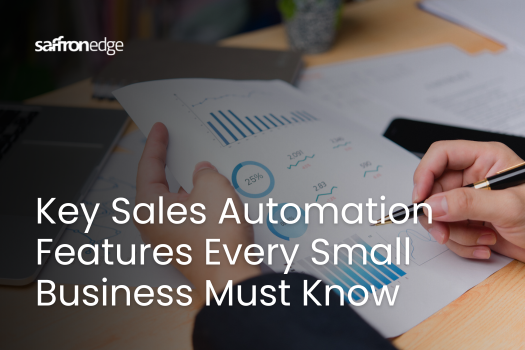Contents
Finance is one of the industries that can easily adopt AI. The industry handles much data, customer relations, and day-to-day trends.
Adopting automation tools and strategies changes how financial businesses operate and engage with clients as technology advances.
This blog explores how financial services businesses leverage automation for growth, focusing on key areas such as email and SMS marketing, landing page optimization, reporting and analysis, and more.
What is marketing automation for financial services?
Marketing automation in financial services refers to using technology to streamline and enhance marketing processes, enabling financial institutions to engage with customers more effectively and efficiently.
This approach is increasingly important as financial organizations seek to improve customer experiences, drive growth, and maintain compliance with industry regulations.
Marketing automation transforms how financial services engage with clients by enabling personalized interactions, improving operational efficiency, and ensuring regulation compliance.
Leveraging these technologies will be essential for financial institutions aiming to thrive in a highly competitive market.
The Role of Automation in Financial Services
Automation in financial services extends far beyond simply replacing manual tasks. It involves transforming operational processes, customer interactions, and strategic decision-making.
By integrating automation into their workflows, companies can achieve remarkable efficiency gains, reduce operational costs, and provide a positive overall client experience.
Adopting automation is particularly relevant in an industry where data management, compliance, and customer service are critical.
Financial services businesses increasingly rely on automation to handle large volumes of data, ensure regulatory compliance, and provide personalized client interactions.
This shift helps these businesses grow because employees can now dedicate their time to important activities instead of being bogged down by routine tasks.
Examples of Marketing Automation for Finance Businesses
1. Email and SMS Marketing
SMS and email marketing automation are critical to financial services marketing. Automation tools can help manage campaigns, target audiences, and customize messages.
Examples of Email Marketing Automation:
- Triggered Emails: Automated responses based on user actions, such as welcome emails, account updates, and reminders.
- Drip Campaigns: Sequential emails sent over time to nurture leads and engage customers.
Examples of SMS Marketing Automation:
- Transaction Alerts: Automated notifications for account activities, fraud alerts, and payment confirmations.
- Promotional Messages: Timely offers and updates sent via SMS to keep customers informed.
2. Optimizing Landing Pages for Targeted Conversions
Landing pages are essential in any digital marketing campaign, especially for financial services firms that want to convert visitors into leads or customers. Automation can improve landing pages by allowing companies to create and manage them better.
Marketing automation services allow you to design landing pages tailored to specific audiences and campaigns. Automation tools can analyze visitor behavior and dynamically adjust the content of landing pages to better align with user interests and preferences.
Example: A bank looking to promote a new investment product can use automated landing page tools to create targeted pages for different customer segments. By leveraging visitor behavior and engagement data, the bank can present personalized offers and content that resonate with each segment, ultimately increasing conversion rates.
3. Reporting and Analysis
Reporting and analysis are fundamental to understanding business performance and making informed decisions. However, traditional reporting methods can be time-consuming and prone to errors. Automation is revolutionizing this aspect of financial services by providing more accurate and timely insights.
AI-driven automation tools can quickly analyze vast amounts of data, generating reports highlighting key trends, opportunities, and risks. This reduces the time spent on manual data processing and improves the quality of insights available to financial professionals.
Example: Financial companies can use AI-powered analytics tools to monitor market trends, track client behavior, and assess the performance of marketing campaigns. These tools can generate real-time reports that help businesses make data-driven decisions and adjust their strategies accordingly.
Let’s break through your revenue hurdles
We find your primary growth blockers, build expert-led strategies, and provide custom data-driven solutions to help you hit your revenue goals.
Companies Already Using Marketing Automation for Financial Services
Several financial services companies have successfully implemented marketing automation to drive growth and improve efficiency.
Here are a few examples:
1. Market Financial Solutions (MFS)
With the help of HubSpot’s CRM system, MFS improved its marketing approach through automation. Automated email and audience segmentation increased the open rates of the emails by 10% and the number of inquiries by 30%.
These results highlight the impact of marketing automation for financial advisors and services in improving client engagement and lead generation.
2. CSB Group
Specializing in fraud detection, CSB Group leverages AI to analyze data and identify potential risks. Using AI in automation has improved CSB Group's ability to make accurate risk assessments and projections to avoid possible threats.
3. Mercian Accountants
With the help of QuickBooks AI, Mercian Accountants has streamlined its bookkeeping processes. The routine tasks were automated to increase efficiency and improve the quality of client interactions, proving that automation is helpful in accounting and financial services.
4. Subscription Stopper
Subscription Stopper’s founder utilizes machine learning algorithms to manage recurring subscriptions and analyze user behavior. The insights provided by AI-driven automation help users track and optimize their spending, showcasing the versatility of automation tools in financial management.
Top 5 tools for marketing automation for financial services
Here are some essential tools for automating various aspects of financial services:
1. HubSpot’s Marketing Automation Software
This platform offers all-in-one solutions for email marketing, audience segmentation, and campaign management. It helps marketing automation experts assist financial services businesses in developing and implementing tailored and compelling marketing messages for the target audience.
2. QuickBooks AI
This tool is ideal for streamlining bookkeeping and accounting tasks; QuickBooks AI integrates with existing systems to provide real-time insights and improve financial management accuracy.
3. AlphaSense
Another powerful tool known for its AI-based analytics feature, AlphaSense assists financial experts in tracking the latest market information. The tool’s ability to summarize and analyze data facilitates more informed decision-making.
4. Chatbots
Popular in customer relations, chatbots answer clients' questions instantly and perform essential functions. Using chatbots in CRM and marketing automation systems improves the client experience and support.
5. Algoriz
This tool specializes in algorithmic trading, using historical and real-time data to develop and test trading strategies. Automation in trading helps finance businesses optimize their strategies and respond more effectively to market changes.
Conclusion
Automation transforms the financial services industry by enhancing efficiency, improving customer engagement, and driving growth.
Industry experts generally agree that finance businesses should keep up with trends and invest time and money in AI and automation.
However, they advise approaching this cautiously, starting slowly and gradually scaling up automation.
If you are a business offering financial services and want to leverage the power of automation, Saffron Edge can help. Our marketing automation and CRM integration expertise can drive your growth and optimize your operations
Contact us today to learn how we can help you leverage automation for your business success.
Outshine Your Competition Faster
Frequently Asked Questions
What is marketing automation for financial services?
Marketing automation in financial services entails using technology tools and applications to enhance marketing processes such as e-mail marketing, mobile marketing, and lead generation. It helps financial institutions streamline their processes and improve client engagement.
How can financial advisors benefit from marketing automation?
Marketing automation can be helpful for financial advisors, as it allows them to send out emails regularly, categorize the audience, and provide relevant content. This improves communication with the clients and assists the advisors in the proper handling of their marketing activities.
What are the advantages of marketing automation for banks?
Marketing automation has several advantages for banks, such as the ability to better control marketing campaigns, better segmentation of customers, and better communication with them.
What should be included in a marketing automation strategy?
A marketing automation strategy should include audience segmentation, personalized messaging, automated workflows, performance tracking, and data analysis. It’s essential to align the plan with business goals and continuously optimize based on performance insights.
How do CRM and marketing automation work together?
CRM and marketing automation integrate client data and marketing efforts. CRM systems store client information while marketing automation tools use this data to deliver targeted and personalized marketing campaigns, enhancing client engagement and overall marketing effectiveness.
Related Blogs
We explore and publish the latest & most underrated content before it becomes a trend.
7 min read
6 Effective Social Media Automation Tools You Need in 2025
By Sabah Noor4 min read
10 Essential Sales Automation Features Every Small Business Should Know
By Sabah Noor
Subscribe to Saffron Edge Newsletter!

Outshine Your Competition Faster










